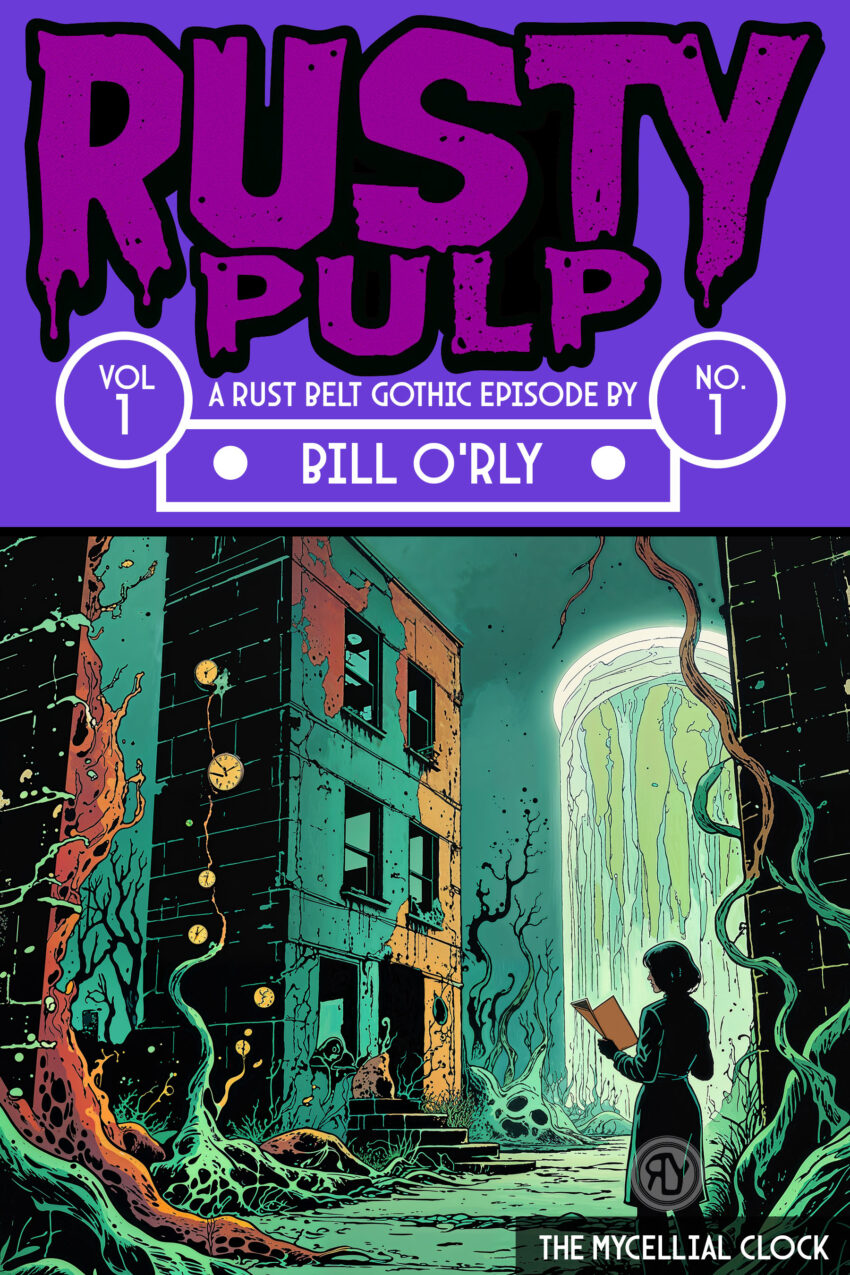33 pgs
In the rusted shadow of a fallen steel town, social worker Carmen Deluca joins a clinical trial that promises to reverse the cellular damage of stress. The treatment works – her body heals, her mind sharpens, and the noise of exhaustion finally fades. But beneath the corporate language of “wellness” lies a quieter horror: the drug doesn’t free its subjects, it refines them.
As Carmen’s clarity deepens, she begins to see the machinery of exploitation with terrifying precision – how systems feed on human endurance, how compassion is weaponized for efficiency, and how “healing” becomes another form of control. Between her reborn vitality and her moral collapse, she must decide whether she’s infiltrating the machine or being rebuilt by it.
A story of labor, decay, and resistance, where psilocybin meets post-industrial despair and the mycelium grows between what’s human and what’s left of the system that consumed it.
1ST PAGE EXCERPT
“The Weight of Systems
Carmen Deluca’s Monday began with the ghosts of the
weekend. An overdose in 4B, the third for that resident in six
months, each one a roll of the dice with a life that had been
systematically devalued since birth. A domestic violence
incident in 3C that would require a mandatory report, likely
resulting in the children being temporarily removed and the
mother, now more isolated than ever, refusing to speak with
her for months. Every Monday, the ghosts were
waiting-different names, same story, the endless cycle of crisis
and inadequate response that defined life at Millbrook Heights.
For twenty-one years, Carmen had been a lead social worker,
the last seven at this sprawling HUD complex in Aliquippa,
Pennsylvania. The town was a ghost of its former self, where
steel mill skeletons rusted on the Ohio River banks and the
median income had been stagnant since Carter. The mills had
closed in waves throughout the nineties, leaving behind a
landscape of abandoned factories and the people who had
once filled them-people like her clients, people like herself,
caught in the slow-motion collapse of an economy that had
moved on without them.
Carmen had entered social work believing systems could be
reformed from within, that with enough dedication and
empathy, she could be a force for positive change. Now, at
forty-seven, that conviction had eroded to a dull ache, like the
chronic pain in her shoulder from a decade-old car accident
that her insurance had deemed “pre-existing” when she’d tried
to get proper treatment.
Her caseload had swollen until every floor of the building lived
inside her head. Faces, birthdays, medical charts, court dates,
prescription schedules-stacked so high she could feel them
pressing on her lungs. What had once been forty-five…”

